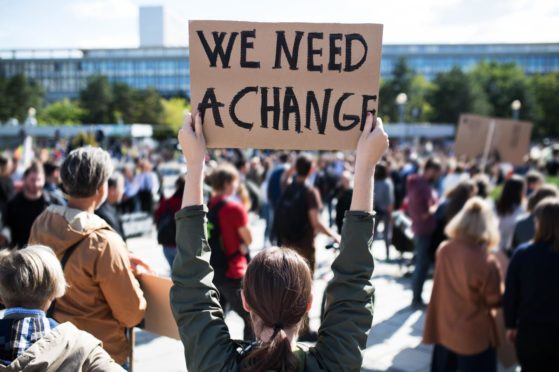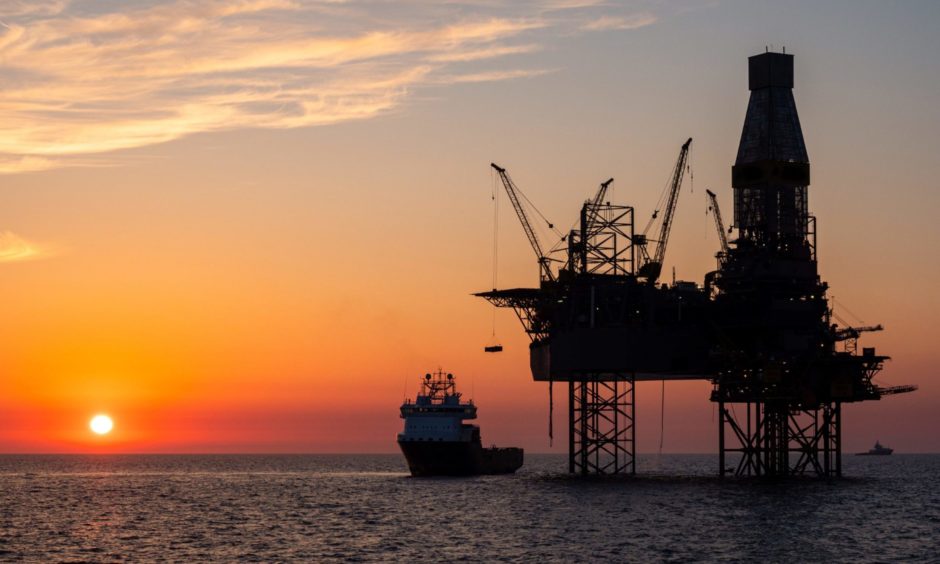Every country in the world is under pressure on the climate right now.
Not just to honour existing commitments but perhaps more importantly to keep adding to them.
With every year that passes these will get bigger and bolder, as the impacts of climate change become more evident, as trade becomes increasingly dictated by it, and as consumer demands are more and more shaped by it.
This is the direction of travel for us all.
So governments the world over are making more ambitious and more comprehensive promises.
Campaigners would argue not quickly or boldly enough, but the momentum is indisputable.
We have already changed for the better
It is very easy to be sceptical. Do we care enough? Should we care at all? Can we change?
Is it too late? Is it too difficult? Is it too expensive?
But we must commit to change. And we are.
Although current global commitments as a whole are inadequate, they are significantly better than they were five years ago and leagues above what was being offered 15 or 25 years previously.
They will be better still in another five or 10 years’ time.
This year, 🇬🇧 is hosting #COP26 in Glasgow.
💬 "But wait a minute, what is a COP?"
Watch our video below to learn more 👇#TogetherForOurPlanet | #ClimateAction pic.twitter.com/Iy1Kj7XgRR
— UK Government Scotland (@UKGovScotland) July 15, 2021
So, just for a moment, let’s accept the rhetoric on climate change.
What if we take the world’s governments at their word?
We know action is required urgently – we are already in a self-declared ‘emergency’.
So what could the next decade look like?
A decade of change
For starters, it would undoubtedly be a decade of change, of laying new foundations.
For too long we have lived off an outmoded Victorian model of economic growth limited only by the speed of production.
We now know resources are not limited, and that includes our seas, water, forests, atmosphere and other life-supporting natural systems.
We might find this scary, it is not half as scary as not changing
We must move away from fossil fuel dependency to survive.
While we might find this scary, it is not half as scary as not changing.
For the first time in human history we need to work out how to be sustainable.
Many people will want to resist that change, so education for all ages will be critical.
So will our liberation from red tape because we cannot solve the climate crisis in the time we have available with our current structures and bureaucracies.
We have borrowed from our atmosphere, from the soil and the sea. And we are borrowing financially from the future too.
What right have we got to burden younger generations with anxiety, debt and fear?
One answer could be a wealth fund built on renewables, similar to the successful Norwegian sovereign wealth fund model.
It was built on oil money in just 26 years to become the single largest investment fund in the world worth over $1 trillion.
Imagine the good we could do with that.
It would require a rethink of our values. A real age of enlightenment. And a move away from one-dimensional measures of success such as GDP.
A decade where anything is possible
This next decade we are imaging could be a decade of encouragement, of inspiration, of learning, of empowerment, of responsibility and of listening to a variety of voices.
Imagine if we listened to those who have not traditionally been heard, yet are directly impacted by the worst consequences of increasing global temperatures.
It would be a decade of excitement, purpose and good news about the actions we have taken, the ideas we have imagined, the positive impact of changes we are making
There is still time to add your voice to our survey on climate change! Five for the Future aims to generate a set of common answers or 'People's Protocol' on climate change ahead of COP26 and you can get involved by answering our five key questions! https://t.co/bphEozShQu pic.twitter.com/TJBOHfqFFJ
— RSGS (@RoyalScotGeoSoc) July 14, 2021
It would be a decade of innovation and new thinking as we challenge outmoded habits and behaviours, and look to new ways of doing things.
It would be a decade of responsibility and compassion, acting on the needs of those most affected and building more resilient societies, promoting some of the best aspects of our humanity.
A decade of people and communities coming together, of everyone helping play a positive role.
Hope for the climate and all of us
It would be a decade of burgeoning wildlife populations. A decade of improving food, air and water quality. Of more thoughtful and equitable use of money and resources. Of regenerating forests. Of seas teeming with life, not warming and dying.
And because of all of this, more than anything, it would be a decade of hope.
Of engaging positively in the future, looking forward to it and being proud of the world we are handing on.
This is the decade that could lie in front of us. And if it isn’t this decade, when?
Mike Robinson is Chief Executive of the Royal Scottish Geographical Society and the innovator behind Climate Solutions, a new online learning opportunity which aims to educate middle and senior business leaders and managers on climate change.












